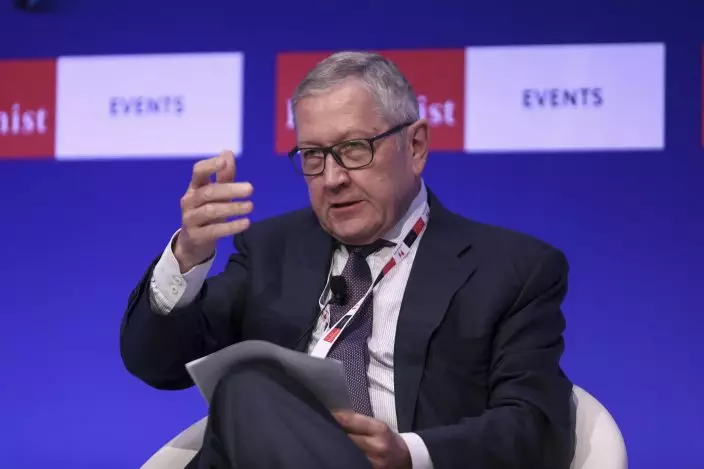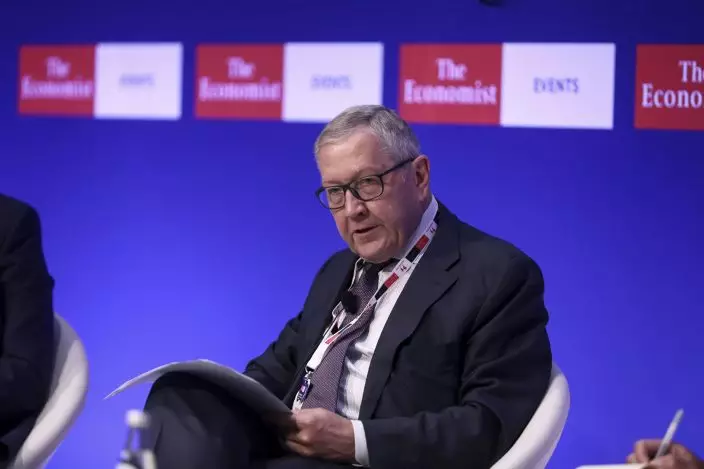Greece on Tuesday launched a 7-year bond auction, its third effort in 2019 to raise money from international markets, as it aims to take advantage of an improvement in borrowing rates to fulfill its financing needs for the year.
The auction aims to raise 2.5 billion euros ($2.8 billion) and follows 5-year and 10-year bond issues earlier this year. Altogether, the issues look to raise about 7 billion euros ($7.9 billion).
Tuesday's auction is the first by the new government of conservative Prime Minister Kyriakos Mitsotakis, who has promised a steady return to bond markets following three international bailouts and to renegotiate strict budget performance targets with creditors.

Klaus Regling, Managing Director of EMS (European Stability Mechanism), speaks at a financial conference in Lagonisi, south of Athens, Tuesday, July 16, 2019. Regling is meeting with officials of Greece's new conservative government and has insisted that the country needs to stick to tough annual budget targets. (AP PhotoYorgos Karahalis)
Greece has promised lenders it will deliver an annual primary budget surplus — the balance before debt servicing costs — of 3.5% for the coming years. But the new government wants to renegotiate that target for 2021 onward.
"We will not endanger the achievement of primary surpluses in 2019 and 2020. We must be serious and consistent with the budget execution," government spokesman Stelios Petsas told state-run ERT television late Monday.
"When we move forward with our reform plan, that will allow us to ... set out to our partners and lenders the need to reduce primary surpluses to more realistic levels."

Klaus Regling, Managing Director of EMS (European Stability Mechanism), speaks at a financial conference in Lagonisi, south of Athens, Tuesday, July 16, 2019. Regling is meeting with officials of Greece's new conservative government and has insisted that the country needs to stick to tough annual budget targets. (AP PhotoYorgos Karahalis)
Creditors, however, have appeared cool to the idea of lowering targets which they argue are crucial to keeping in check Greece's huge national debt — around 180% of GDP.
"Any rebalancing of fiscal policies should be targeted to foster growth while safeguarding the achievement of the agreed primary surplus," Klaus Regling, head of the eurozone rescue fund ESM, told a conference near Athens Tuesday.
The ESM and a predecessor rescue fund remain Greece's largest creditors, having provided 205 billion euros ($230 billion) out of the nearly 290 billion euros ($325 billion) the country received in bailout loan support.
Follow Gatopoulos at https://twitter.com/dgatopoulos
Full AP coverage at https://www.apnews.com/Greece


